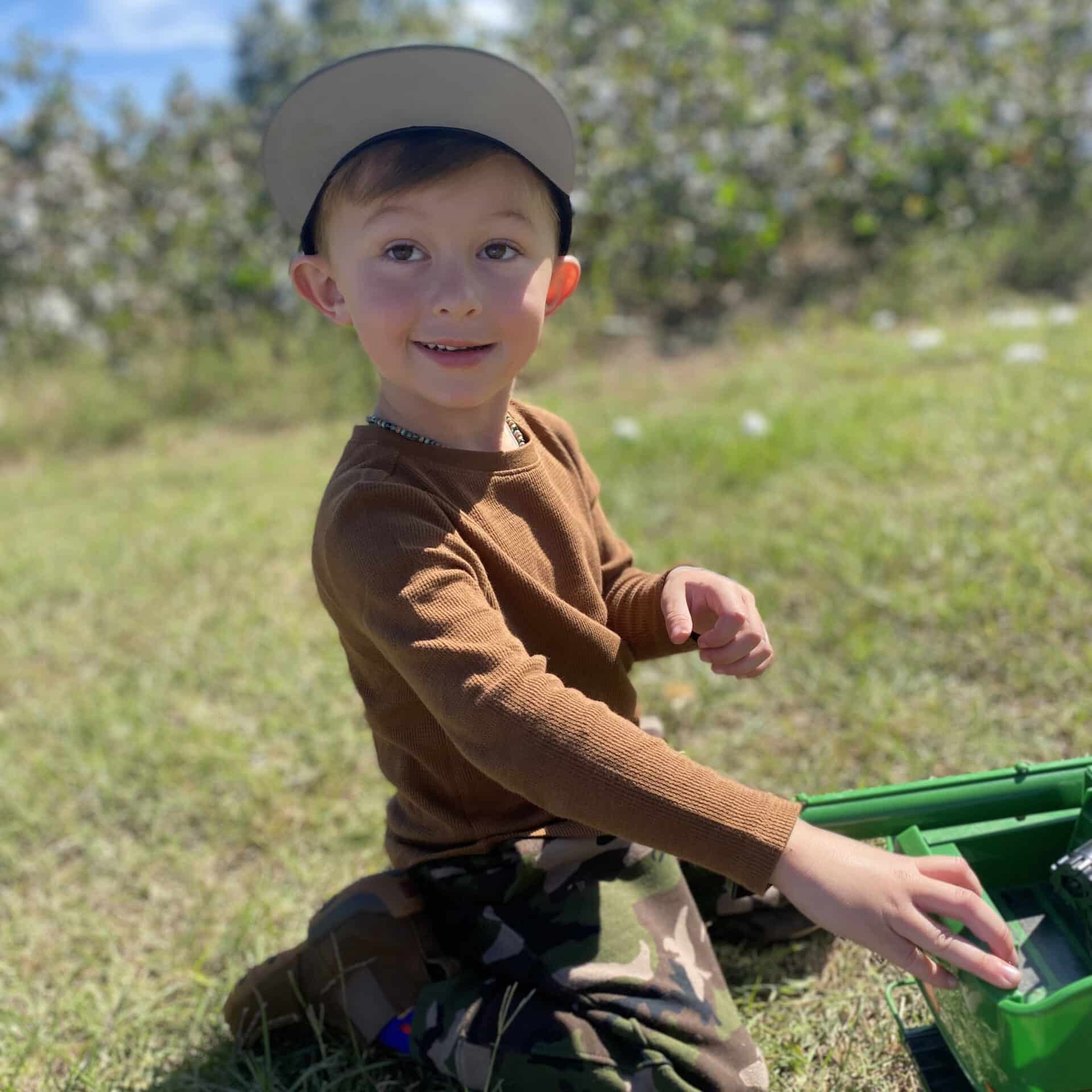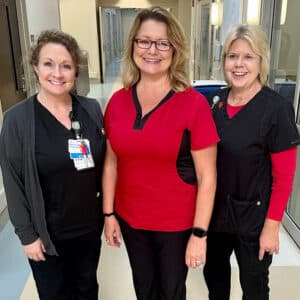
By Amanda A. Livingston, Director of Communications and Events
In June, Amanda Moore was teaching summer school in Sylvester, Ga., when her mother-in-law called.
“Oren had fallen off the back of a golf cart,” Moore said.
Her four-year-old son hit his head after the cart jolted with the start.
After waking from a nap following the fall, Oren (pictured) was particularly drowsy, complained of his head hurting, and vomited — all concerning symptoms of a head injury. His father and grandmother took him to the emergency department at Crisp Regional Hospital in Cordele.
Moore would arrive minutes later. “He didn’t even know I was there,” she said.
Oren was not acting appropriately for his age, and it was clear to Dr. Sheila Southerland, the physician who treated him, that something was wrong. “Most kids his age are very playful, getting into trouble in the emergency department, interested in everything and touching everything.”
Oren vomited again and remained unresponsive, even to a needle stick. His ability to move was greatly subdued. He received a CT scan in less than fifteen minutes of arrival to the ED, according to Dr. Southerland. It was apparent that his injury was more than a concussion. The scan showed abnormalities, and it was rushed to radiology for reading.
The report was returned quickly: Oren had a skull fracture and a small bleed. The physician and staff knew he needed to be under the care of pediatric specialists. Time was of the essence.
Emergency department staff dialed the Children’s Rural Access Line Pilot (CHRP) to reach neurosurgery at Children’s Healthcare of Atlanta. The plan was now in motion to transfer Oren.
However, there was a problem. Stormy weather and heavy rain in central Georgia meant the helicopter could not reach Crisp Regional. An alternative plan was needed. “We were terrified in that time,” said Oren’s mother.
Dr. Southerland, who also serves as the Emergency Medical Services director, called an ambulance immediately to start the transfer process from their end. In the meantime, emergency department staff were taking care of Oren’s needs to keep him stable and keep his family updated on the transfer status. He was fitted with a collar and his vital signs were monitored.
Moore said, “Their communication with Children’s gave them what they needed to be doing in order to serve him as a pediatric patient.”
It was determined that the helicopter could meet the ambulance in Macon. Moore made the trip with Oren and boarded the helicopter bound for Children’s. It was evident to her that the nurses on that flight had extensive pediatric care expertise. “I remember the male nurse looking at me and saying ‘Mama, we’ve seen these head injuries before. Your baby is gonna be OK.’” She found his confidence reassuring.
Once the helicopter landed at Children’s, emergency staff stepped in to assess and treat Oren. Moore said everyone at Children’s was helpful and supportive, answering all questions. Staff were in constant communication with each other and with the family.
Oren became more aware and staff looked in on him every hour that first night, checking his pupils, movements, and responsiveness. In all, he had a three-night stay before heading home to continue his recovery. Though he had sensitivity to light, sleepiness, and emotional reactions during that time, Oren returned to his normal self within two weeks.
Amy Hester, Crisp Regional ED director, said “I actually had him in a class that I was teaching at church at VBS a few weeks after that. He’s had a complete recovery with no problems.”
Moore said prayers and the swift actions of Crisp Regional staff, followed by care received at Children’s, contributed to the positive outcome. “Crisp was on top of it. They were phenomenal. What seemed like hours and hours to me was only an hour and a half.”
Dr. Southerland expressed how seriously Crisp Regional staff take child injuries and illnesses. “We treat kids with urgency.” Having access to Children’s and the smooth process for transfer are paramount, she said. “We know we can call Children’s, get the right specialist, the right information, and get some backup.” In Oren’s case, things could have gone much worse without that access.

Rural Pediatric Health Alliance
Crisp Regional is participating in Kids Alliance for Better Care (KidsABC), as part of a joint initiative between Children’s Healthcare of Atlanta, Mercer University School of Medicine (MUSM), and the Georgia Rural Health Innovation Center at MUSM. The KidsABC emergency department pilot project aims to outfit rural hospitals with pediatric equipment, medications, resources, and training to enhance care for kids and keep their care close to home for as long as possible.
Dr. Southerland said, “We can augment our care for the patients that we have and begin treatments so much earlier. We can intervene before a disease process progresses. That is critical. All of us — the nurses, the staff, the physicians — are very excited.”
The CHRP line is one example of a resource for rural EDs to expand access to health care and specialist support. CHRP is available for use by any rural hospital and rural pediatric physician in Georgia.
